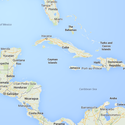-
About
- About Listly
- Community & Support
- Howto
- Chrome Extension
- Bookmarklet
- WordPress Plugin
- Listly Premium
- Privacy
- Terms
- DMCA Copyright
- © 2010-2025 Boomy Labs

 List Builder
List Builder
Listly by List Builder
Top Things to Do in Beirut, Lebanon, from a Cruise Ship - Feel free to add, vote or provide feedback to the list
Saint George Greek Orthodox Cathedral ( Arabic: كاتدرائية القديس جاورجيوس للروم الارثودكس ) is the seat of the Greek Orthodox Metropolitan bishop of the Orthodox Archdiocese of Beirut and its dependencies. It is the city's oldest extant church.
The American University of Beirut (AUB); Arabic: الجامعة الأميركية في بيروت) is a private, secular, and independent university in Beirut, Lebanon. Degrees awarded at the American University of Beirut (AUB) are officially registered with the New York Board of Regents.
The National Museum of Beirut ( Arabic: متحف بيروت الوطنيّ) is the principal museum of archaeology in Lebanon. The collection was begun after World War I, and the museum was officially opened in 1942. The museum has collections totalling about 100,000 objects, most of which are antiquities and medieval finds from excavations undertaken by the Directorate General of Antiquities.
The Mohammad Al-Amin Mosque is a sunni mosque located in Martyrs' Square in downtown Beirut, Lebanon. It was built between 2002 and 2007 by the former Lebanese Prime Minister Rafik Hariri, who was buried beside it. It was inaugurated by his son Saad Hariri on October 17, 2008.
Zaitunay Bay, built on 20,000 m2 of prime waterfront land and extending along the waterfront of Beirut's high-end street, is an all year long environment that brings together public and private spaces including a variety of restaurants and selective retail shops.
Hamra Street ( Arabic: شارع حمراء), or Rue Hamra, (technical name : Rue 31, 31st Street, شارع ٣١) is one of the main streets of the city of Beirut, Lebanon, and one of the main economic and diplomatic hubs of Beirut.
The Corniche Beirut is a seaside promenade in Beirut Central District, in Beirut, Lebanon. Lined with palm trees, the waterfront esplanade offers visitors a magnificent view of the Mediterranean and the summits of Mount Lebanon to the east.
Raouché (Arabic: الروشة، ar-rawʂe) is a residential and commercial neighborhood in Beirut, Lebanon. It is known for its upscale apartment buildings, numerous restaurants, and cliff-side cafés that line Avenue de Paris, which forms part of the Corniche Beirut. The corniche or the wide, seaside sidewalk of Avenue de Paris is popular on weekends and evenings where strollers and joggers crowd the pavements.
Solidere s.a.l. is a Lebanese joint-stock company in charge of planning and redeveloping Beirut Central District following the conclusion, in 1990, of the country's devastating civil war. By agreement with the government, Solidere enjoys special powers of eminent domain as well as a limited regulatory authority codified in law, making the company a unique form of public-private partnership.
Hamra (الحمرا in Arabic) is a neighborhood located in Beirut, Lebanon. The center of the neighborhood, Hamra street, is one of Beirut's major commercial districts, and is filled with Lebanon's top fashion stores, as well as many restaurants, cafes, and hotels. The American University of Beirut and Lebanese American University are notably located in the neighborhood.
During the Lebanese civil war, Beirut was the scene of fierce battles between warring factions; after a few months of fighting, the brief cease-fire in September 1975 allowed the business owners of Beirut's central district to evacuate their shops' assets before fighting resumed turning downtown Beirut, including its souks into a sniper patrolled no man's land.
The Robert Mouawad Private Museum ( Arabic: متحف روبير معوض الخاص) is a private residence in Beirut's Zokak el-Blat quarter that was turned into a museum by the Lebanese businessman Robert Mouawad. The palace was built in the neo-gothic style by the Lebanese politician and art collector Henri Philippe Pharaoun in 1911.
The Beirut International Exhibition & Leisure Center (commonly BIEL) is a large multi-purpose facility, in downtown Beirut. Lebanon's largest such complex, it hosts exhibitions (Beirut Book Fair), conferences, concerts and private events. It opened on 28 November 2001.
The Maghen Abraham Synagogue ( Arabic: كنيس ماغين أبراهام - "Kanīs Mā'ghīn Abrā'hām"; Hebrew: בית הכנסת מגן אברהם - "Beth HaKenesset Maghen Abraham") is one of the main synagogues in Lebanon. Located in the former Jewish district of Wadi Abu Jamil in Beirut, the synagogue was destroyed during the Lebanese Civil War.
This article has multiple issues. Please help improve it or discuss these issues on the talk page . Saifi Village is a residential upscale neighbourhood in Beirut, Lebanon. Saifi Village is located at the southeastern periphery of Centre Ville.
Place des Martyrs ( French for Martyrs' Square) may refer to:
The Château de Montaigne is a castle situated on the borders of Périgord and Bordelais, near Bergerac and Saint-Émilion, in the small of Saint-Michel-de-Montaigne in the Dordogne département of France. This fortified castle dates to the 14th century and was the family residence of the Renaissance philosopher and thinker Michel de Montaigne.
Rue Verdun, or Verdun Street, is an upscale commercial and residential street in Beirut, Lebanon. The street, which is a major shopping center and tourist attraction, was named in honor of the Battle of Verdun during World War I. However, "Verdun" remains the street's unofficial name.
Sursock Museum, which is officially known as Nicolas Sursock Museum, is a modern art museum Beirut, Lebanon that was directed by an collector named Ibrahim M. Beyhum . It is located in the historic street known as Rue Sursock in the Achrafieh district of Beirut.
